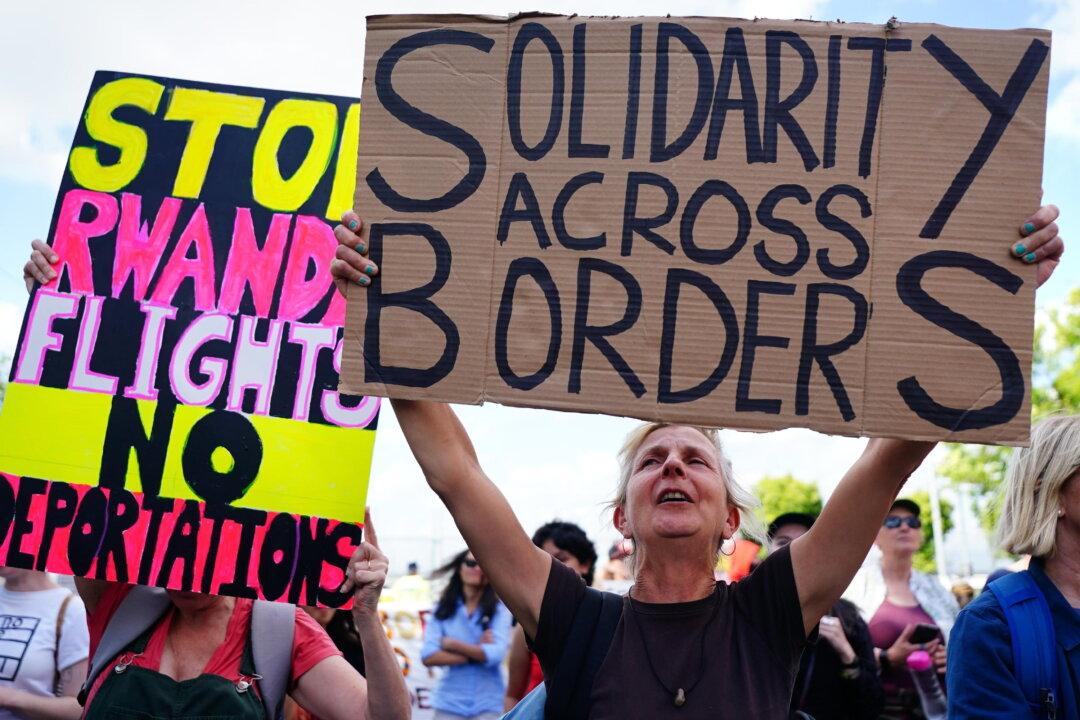British experts on constitutional law and the UK’s relationship with Europe are divided on the question of what might happen in the wake of the Rwanda deportations impasse.
The European Court of Human Rights (ECtHR) stepped in at the last minute on Tuesday night with an interim measure that effectively blocked the British government from deporting any asylum seekers to Rwanda.





